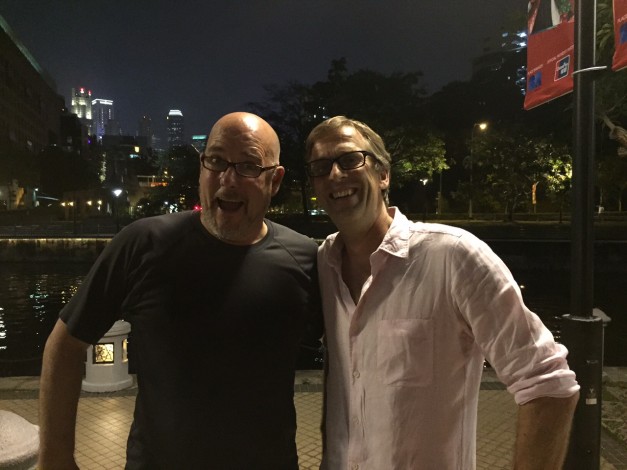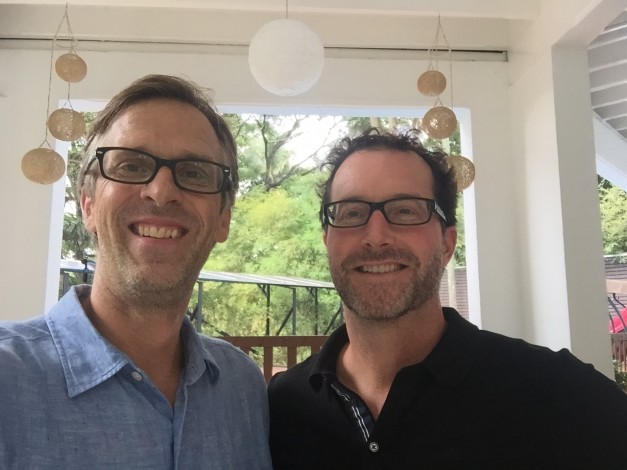
Robert Bradford is an American professional speaker who flies around the world to speak. He just flew in after a speaking engagement in Malaysia and is soon flying off to Dubai for another.
But today, he is in Singapore for a speaking engagement, and I managed to meet up with him tonight for a few hours so we could speak about speaking.
Robert is the expert on “strategy” and has done more than 2,000 strategy sessions. He has also been invited to speak at many Speaker Associations, multiple times for the National Speakers Association (NSA), to share his experience on how to make it as a professional speaker. So it was, of course, very valuable to get some one-on-one time with him to learn.
We talked about a host of issues, but my post today will be about one thing he mentioned that I found very interesting: the need for a speaker to be unique.
Actually, “being unique” is a topic of one of Robert’s keynotes, so I guess it makes a lot of sense to listen to what a thought leader on “uniqueness” has to say about being unique as a speaker.
One thing he said was that many speakers are not working hard enough on becoming unique.
What you have to understand about the speaking business is that while there might be many opportunities to speak at conferences, it is actually quite tough to be the one speaker who gets selected.
Of all the people in the world, why should they pick you to speak?
Most speakers do not have a good answer to that question.
My answer for why I should be selected to speak at a global conference is that I have (with a very high likelihood) spoken in more countries and to more different kinds of audiences than the other speakers on a shortlist for a global conference.
And my unique experience of knowing how to speak to people from different cultures, countries and backgrounds is a big advantage when someone is trying to pick a speaker for a global conference.
If you were organising a global conference and you had three really good speakers on your shortlist where one had spoken in 3 countries, one in 13 countries, and one in more than 60 countries on 6 continents and 32 different countries for 2014 alone (and has written a book about global companies), who would you pick? 😉
Now, back to Robert.
Robert said that a speaker needs to nail two things to get selected:
Being Unique and Adding Value.
And you have to nail BOTH.
Now, here is the thing: It is not enough to be Unique.
No one will EVER select a speaker just because he or she is unique.
Yet, so many speakers spend way too much of their energy trying to make themselves different.
Speakers get selected because they add value to a conference.
But – and this is were it becomes interesting – you do NOT get selected to be the speaker if you are not ALSO unique.
There are just too many good speakers out there that clients could choose while still knowing that they would be adding value.
To be picked, you have to stand out. Be unique.
So how do you stand out?
Well, the best way to stand out is by being perceived as being unique in the value that you can deliver.
Get it?
Your ability to deliver value can make you unique.
But you are not unique just because you can deliver value.
Lesson: What is the unique value that you can deliver? And if you do not have a good answer to that question, what do you have to do in order to get it?
(Suggestion: Submit your email address in the form to the right to get a convenient email summary in your inbox every time 10 new posts have been posted.)
Contact Fredrik by clicking on the email symbol below.

